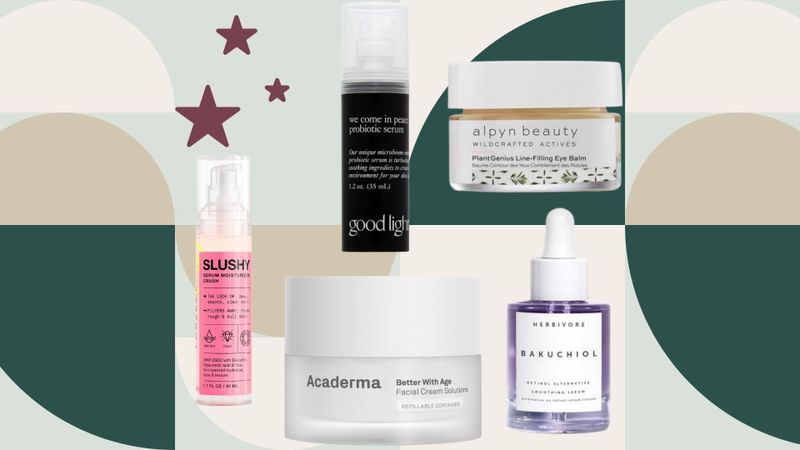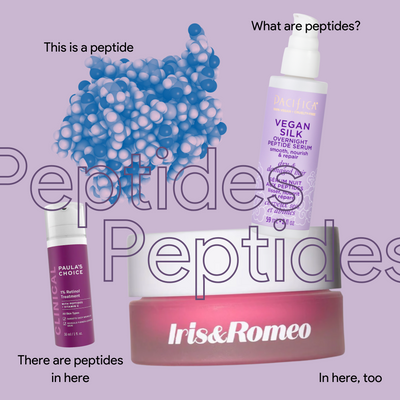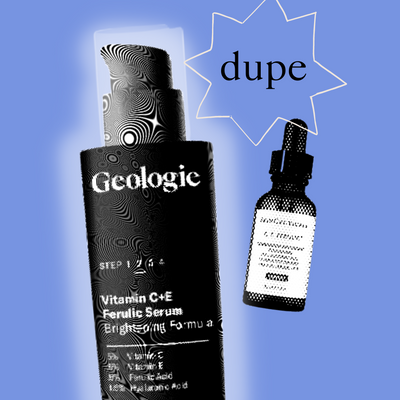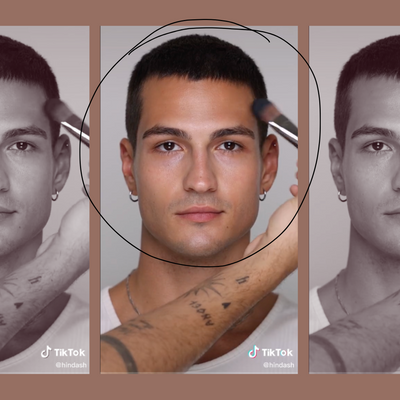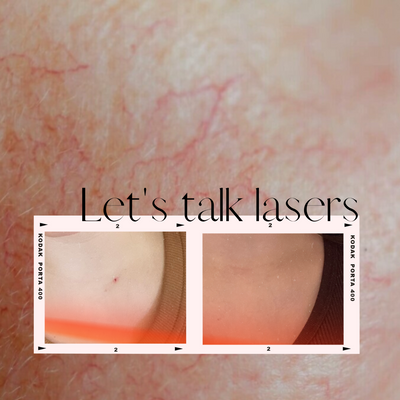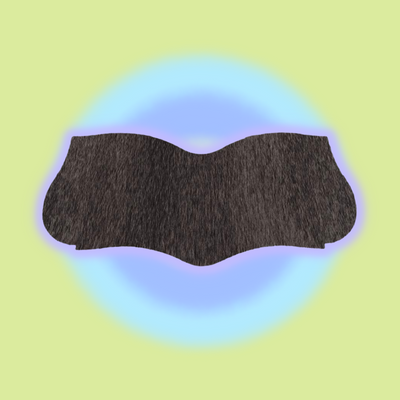Am I actually ugly, or is it just the retinol?
That’s a thought I had often when I first started using retinol and experiencing what’s referred to as the “retinol uglies.” That is, what people describe as breakouts that can occasionally follow the use of retinol.
SEE ALSO: Minori is the makeup brand that wants to Marie Kondo your beauty routine
I listened to all the experts who told me to proceed with caution with retinol, AKA the topical vitamin A clinically proven to reduce wrinkles. Most dermatologists and estheticians recommend incorporating it into your routine once per week until your skin builds up a tolerance to it. I followed “the sandwich method” of applying retinol, which basically means applying retinol (the meat) between layers of moisturizer (the bread) to reduce irritation.
Nonetheless, I still experienced breakouts the first few times after trying out retinol that left me practically begging for wrinkles. At least wrinkles weren’t red, splotchy, and painful, like breakouts.
Why is retinol so harsh? It can have a drying effect on the skin, which can weaken your skin barrier over time. But there’s a new retinol alternative on the block that promises similar wrinkle-reducing benefits without any of the harsh side effects: bakuchiol.
Say it with me, like this: buh-koo-chee-all. Whereas retinol was invented relatively recently in 1967 by dermatologist Dr. Albert M. Kligman, bakuchiol goes way back. Bakuchiol is an ancient plant byproduct that has been used by native populations for centuries. It comes from the babchi plant, which is native to India. The seeds of the babchi plant have been used in Ayurvedic medicine as a cure for skin disorders such as vitiligo and psoriasis.
Is bakuchiol the beautiful, wiser older sister of retinol? We talked to cosmetic chemist and CEO of Acaderma Dr. Shuting Hu to find out how the two wrinkle-fighting ingredients differ, and which one comes out on top.
What are the skin benefits of bakuchiol?
Bakuchiol has both anti-aging and anti-inflammatory properties, which means it’s helpful in reducing fine lines and wrinkles AND things like blackheads, whiteheads, and acne.
“Similar to retinol, bakuchiol triggers collagen production and skin cell regeneration, reducing the appearance of fine lines and wrinkles,” says Dr. Hu. “The ingredient is also known to restore firmness, improve elasticity, even out the skin tone, and smooth out skin texture.”
Like retinol, bakuchiol works by helping your skin cells turn over faster, significantly increasing the speed at which post-acne pigmentation disappears. Unlike retinol, it’s non-irritating and unlikely to increase your skin’s sensitivity.
Is bakuchiol better than retinol?
It depends! Some people’s skin can handle the strength of regular retinol. As the saying goes, if it ain’t broke, don’t fix it. If you’re using retinol in your daily routine with zero issues, there’s no need to switch to bakuchiol.
However, if you’ve never used retinol before and know you have sensitive skin, bakuchiol may be your new acne and wrinkle-fighting bestie.
“Bakuchiol is often used as a natural alternative to retinol that is less irritating and plant-derived, which is great for those who are looking for non-toxic, gentle, vegan products,” says Dr. Shu. “It’s also great as a pre-introduction to retinol so that your skin can get acclimated to the product.”
How often should you use bakuchiol?
Bakuchiol doesn’t come with the same warning labels as retinol. It’s safe to use as any other skincare product in your routine.
“As a plant-derived, natural ingredient, bakuchiol is very gentle on the skin and will not cause any dryness or irritation,” says Dr. Shu. “It’s great for all skin types to use and can be applied twice a day – in the morning and in the evenings.”
What are the differences between bakuchiol and retinol?
Bakuchiol and retinol are NOT the same things. Bakuchiol comes from a plant, whereas retinol is a form of vitamin A that was created synthetically in a lab. While they have a similar effect on the skin, from a chemical and molecular point of view, they’re not even remotely related.
“The key difference between bakuchiol and retinol is that as an all-natural ingredient, bakuchiol is not known to cause any dryness, sensitivity, or irritation,” says Dr. Shu. “In fact, as an antioxidant, bakuchiol can help protect your skin from external aggressors that might cause sensitivity or irritation.”
Since its invention back in the late ’60s, retinol has been widely considered the “gold standard” in preventing wrinkles and fighting acne. Meanwhile, bakuchiol has been here the entire time, probably laughing at these scientists tinkering away in their labs trying to create a synthetic version of bakuchiol’s natural abilities.
So, yes, scientists kind of created a worse version of the thing that already exists and excels at its intended function of improving skin texture and tone. Proves that nature always provides and prevails.
Can you use bakuchiol and niacinamide together?
According to Dr. Shu, bakuchiol plays well with just about any and all skincare ingredients.
“As a plant-based ingredient, bakuchiol can easily mix and interact with other ingredients, such as niacinamide, without causing irritation,” she says. “These two ingredients can complement one another as both are rich in antioxidants, have anti-inflammatory properties, and will plump the skin for an anti-aging effect.”
Skincare ingredients working together to make your skin look even better? We truly love to see it.
Best bakuchiol skincare products
good light we come in peace probiotic serum ($24)
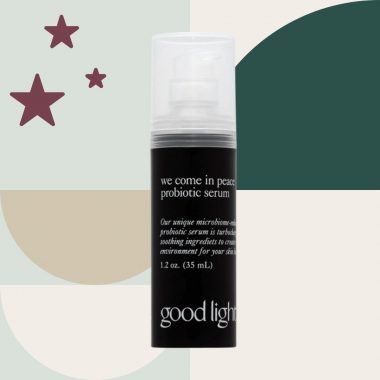
Bakuchiol helps repair acne scars and dark spots, while blue tansy acts as an anti-inflammatory to calm any skin sensitivity. Combined with probiotics, this serum can help limit the development of more breakouts and thus more acne scars.
Acaderma Better With Age Rejuvenating Rich Cream ($80)
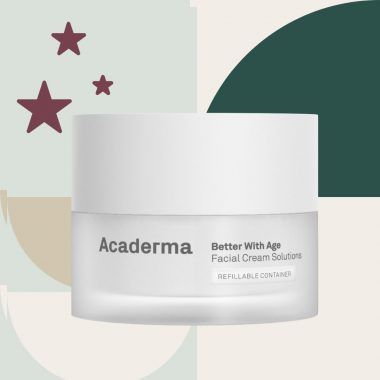
This rich cream delivers an intense surge of moisture from nourishing shea butter, coffee seed oil, moringa oil, and bakuchiol. The deeply hydrating formula also contains six firming peptides and full-spectrum hemp oil to reduce redness and inflammation, and is designed specifically to target existing signs of aging.
Herbivore Bakuchiol Retinol Alternative Smoothing Serum ($54)
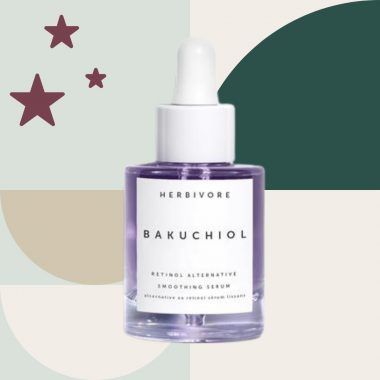
Bakuchiol is beautiful in this gemstone-colored wrinkle-smoothing serum. Polyhydroxy acid acts as a gentle exfoliator to visibly resurfaces skin to enhance absorption. Tremella mushroom helps to hydrate the skin and retain moisture
iNNBEAUTY PROJECT Slushy Serum Moisturizer Crush Infused with Bakuchiol ($22)
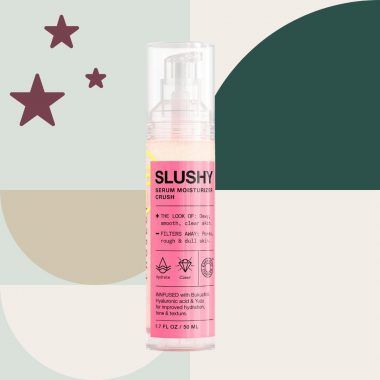
We first discovered iNNBEAUTY PROJECT last year and raved about its simple, sustainable, and effective products. Slushy Serum is one of the brand’s standout products, thanks to its unique slushy-like texture. Bakuchiol, hydrating hyaluronic acid, and vitamin C-rich yuzu come together to make this serum sing.
alpyn beauty Line-Filling Eye Cream with Bakuchiol and Caffeine ($62)
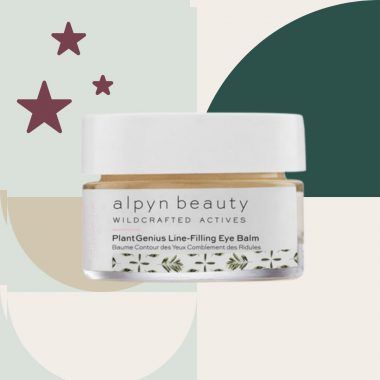
The skin around your eyes is usually the first area of your face to show signs of aging, which is why a bakuchiol is a must-have ingredient in eye cream. This one from alpyn beauty hydrates while also diminishing the look of dark circles and eye bags.
1) The future of beauty: why biomimetrics is the key to effective, sustainable skincare
2) Everything you need to know about skin barrier function
3) Beat the heat: the derm-approved tips for your best summer skin

